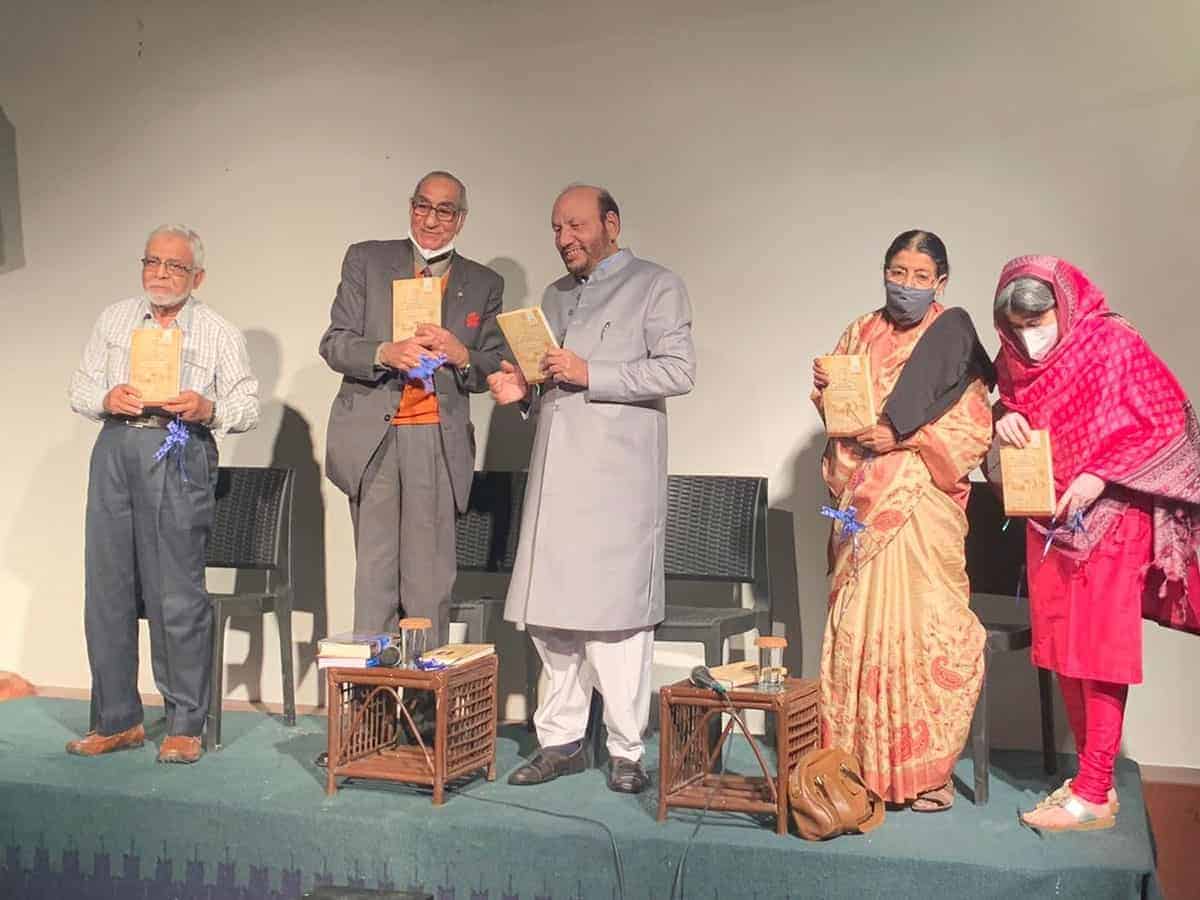Hyderabad: On the 21st of December, Ram Pall Joshi, one of our finest IPS officers and a former Director General of Police in Punjab was at Lamkaan, a popular cultural space in Hyderabad, reading from his book.
The Bazmi Sukhan and CDPP launched this autobiographywritten by one of our most respected civil servants. R P Joshi started his career in the Indian Military and retired as Director General of Police in Punjab. An illustrious officer, he maintained and groomed his love for poetry and respect for poets all his life. This walk down memory lane titled AATA HAI YAAD MUJHKO GUZRA HUA ZAMANA (Come to my memory the epoch that has passed) is an ode to Urdu poetry as it is to a life well lived.
The book deals with his experiences meshed with his love of Urdu poetry. The title of the book itself is taken from Allama Iqbal’s poem Parinde ki faryaad (A Bird’s plea). Written in a lucid as well as beautifully aesthetic style, Joshi combines the simplicity of English prose with the complexity of Urdu poetry. It is common knowledge that Urdu poetry on its own is rather difficult and takes years of study to properly grasp the meaning and significance of the poet and his writing. However, the author does this wonderfully well by first narrating an interesting anecdote from his life and then presenting an Urdu couplet that manages to capture the narrative’s sentiment perfectly. An example may help to illustrate the point.
Joshi starts off by describing his encounters with the Sikh politician Jiwan Singh Umranangal, who Joshi considers to be one of the perfect human beings that he has ever met. Joshi first got in touch with Umranangal as Joshi was posted in Amritsar as an Additional Superintendent over a phone call. Umranangal had called Joshi to discuss some police matters. Joshi himself was, however, struck by the simplicity and straightforwardness of the caller. Years done, Joshi got to know Umranangal well, and was remarkably impressed by his sublimity, his simplicity of attitude and demeanour, his clean and pure lifestyle and liberal heart, his amazing capacity for hard work and finally, his generous sympathy and perception in identifying the problems faced by urban and rustic workers, who themselves could not speak coherently about their problems.
Regardless, despite Umranangal’s amazing capacity as a human being, the thing that most struck Joshi was the incident in which Umranangal wept bitterly in the sanctum of Gurudwara Fatehgarh Sahib, poignantly invoking God and pitifully sobbing and begging God to forgive him for the murder of a young Muslim boy, which he committed as a frenzied youth during a feud in his adolescent days. His bitter weeping had saddened every devotee present in the Gurudwara, so much so that they too, had moistened eyes. Joshi believes that it was at this moment where Umranangal attained the form of the perfect human being; it was at this moment the Umranangal was born again, and all his sins were washed off, and he was forgiven by the all-merciful God.
Joshi ends the narrative by aptly placing Allama Iqbal’s couplet
Motī samajhke shān-e-karīmī ne chunliye
Qatre jo the mire araq-e-infi.ālke
(The Merciful Lord in his glory collected all my tears; considering them to be so many pearls.)
The book offers many more examples of Urdu poetry manifesting itself in one of Joshi’s personal anecdotes. The blending of prose and poetry produces a beautiful harmony, in which prose is beautified by poetry, and poetry is simplified by prose. However, the book is not all sombre. Some of his anecdotes are exceptionally funny as well. For instance, Joshi relates a story he heard from his professor when Joshi was still an undergraduate student of Persian. A student had asked his professor, “How does one understand Persian poetry?” The professor half-jokingly remarked that since most of Persian poetry is about love, in order to understand, one must fall in love. The student left, and sometime later, came to give the professor an invitation card to his wedding.
Joshi’s book is exemplary and a great collection of personal and professional anecdotes. Much like his Persian Professor, to appreciate this book, one must love Urdu the same way Joshi loves it. The book was launched by Professor Syed Ainul Hasan, the Vice Chancellor of MANUU, Professor Ashraf Rafi, who retired as Head Department of Urdu at Osmania University, Humera Ahmed, co-founder of Lamkaan and Prof Majid Bedaar who is an illustrious academic and was in the panel of discussants.

